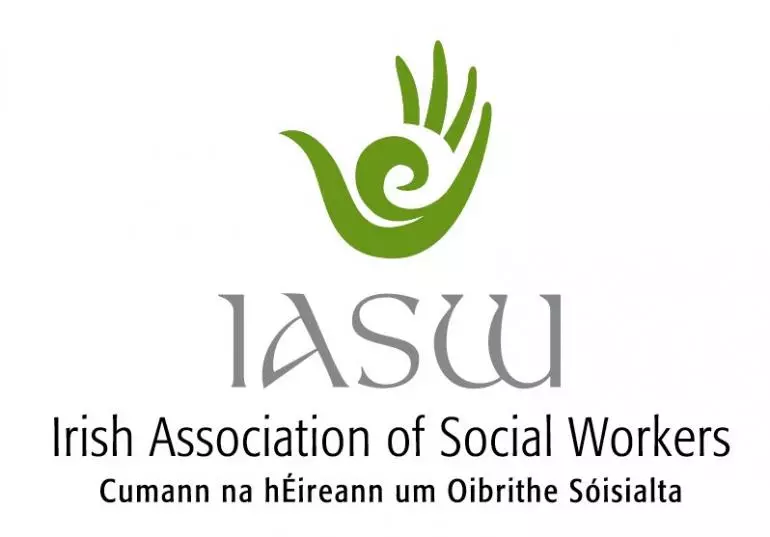
29th April 2020
The Irish Association of Social Workers (IASW) today called for access to a dedicated social work end of life and bereavement care service for all dying individuals and their families in hospitals, hospices, public and private nursing home, residential centres and community palliative care teams for the duration of the Covid_19 pandemic.
Amanda Casey, IASW member and Head Social Worker at the Mater Hospital said “Almost half of Covid_19 deaths have occurred outside hospitals in residential settings without access to social work palliative or bereavement care. Social workers have invaluable expertise in supporting the dying person and responding to the needs of the newly bereaved. We are willing, able and prepared to use these skills and to support our communities in the fight against Covid-19. National responses to the psychosocial needs of the dying and bereaved need to tap into this vital resource, use our expertise and deploy us to areas of greatest need.
Covid_19 has had a profound effect on the ways we support the ill and mourn our loved ones. It has introduced new and painful social distancing at times when people require a high degree of connection and emotional support. Harrowing media reports, in Ireland and abroad, offer poignant accounts of the distress experienced by the sick, the dying and their families. Many people have and will continue to die without the loving comfort and presence of their family, often for many weeks prior to their death.”
Social work bereavement care services offer a consistent point of contact which facilitates a skilled emotional, practical and social support response in response to key concerns identified by individuals and families. Social work must have direct representation at national level to ensure that our professional expertise informs and shapes a national response to the psychosocial needs arising as a result of the pandemic.
Equal Access for All
Marginalised, vulnerable groups, people with communication difficulties, disabilities, language barriers and mental health difficulties may require additional and targeted end of life care and bereavement supports, to ensure that barriers to health and social care are addressed.
Do not underestimate the value of practical support at this time
So often national discussion on end of life and bereavement care is solely focused on the therapeutic or basic information needs of the dying and bereaved. These are key needs but dying and bereaved people often have additional practical needs which may feel overwhelming without support. Social workers have shared family messages with isolated patients, helped people make final plans, write wills, resolve final issues. Social workers have brought relatives to car parks to wave through windows, supported communication via technology (and provided emotional support after the call ended), printed out family photographs for bedside lockers, asked families how they would like staff to care for their much loved relative at the point of death, when a heartbroken family cannot be physically present, helped return deeply sentimental possessions to the newly bereaved in a sensitive way, organised death certificates and worked with undertakers when a distressed relative needs support with planning. This is the help dying and bereaved people request and this is the person and family centred care the dying and bereaved in all settings deserve to access.
As COVID-19 decimates human connectedness, social workers fight to keep communities connected
Covid-19 undermines our ability as humans to connect with one another. It is absolutely vital that in response, we enshrine principles of a person/family centred approach in the delivery of all psychosocial, end of life and bereavement care. The individuals and families who require this care will have already experienced significant loss of connection.
Huge personal and economic costs ahead in absence of social work end of life and bereavement care
Where services are available and adequately resourced, a continuum of care is provided to the person who is dying, offering support through illness and end of life care. It is important that the process of delivering psychosocial and bereavement care in a society adapting to Covid-19 is not made unnecessarily complex or remote and that we support, develop and adapt existing structures and services to respond in a holistic, person and family centred way. The personal and economic costs of not providing access to a dedicated social work service will be huge if we do not plan to meet the needs of those dying and bereaved at this time.
For more information contact Amanda Casey or Kerry Cuskelly. T: 086 024 1055 E: office@iasw.ie
Notes to Editor
The Irish Association of Social Workers (IASW) is the professional body representing social workers in the Republic of Ireland. There are over 4,000 registered social workers in Ireland. This includes staff working in the Health & Social Care sector, in education and training, in the voluntary sector and a number of independent practitioners.
The Irish social work profession has responded swiftly to the psychosocial needs arising as a result of the pandemic. Key developments to date, through the aegis of the Irish Association of Social Workers (IASW), include the publication of Covid specific guidance for medical social workers (McGarry & Jackson, 2020), the development of an agreed model of psychosocial care in acute hospital and hospice settings by the Head Medical Social Work group (McGarry & Casey, 2020) and the revision and update of the Bereavement Support Guidelines for Specialist Palliative Care social workers (Finucane et al, 2020). Elsewhere, a new model of liaison social work has been developed and implemented in St Mary’s Hospital in the Phoenix Park to ensure a consistent and continuous point of contact is provided for patients and families experiencing separation. Similar models have been implemented in a small number of public and residential units.